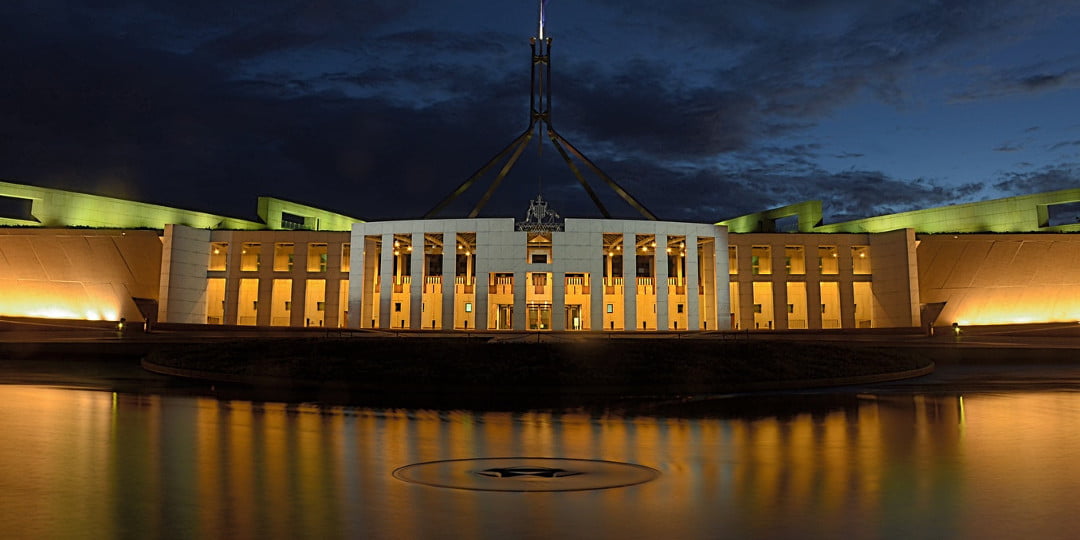Over the course of the next three years (and perhaps beyond) Australia will be governed by the Liberal-National Coalition led by Prime Minister Scott Morrison. I suspect it will prove to be the most socially conservative government of the last fifty years. Will this mean the end of substantial progress on issues such as climate change, treatment of asylum seekers, the Uluru Statement from the Heart, the aid budget, and social and affordable housing? I hope not.
Politics is not for the feint-hearted or thin-skinned. Election campaigns see arguments spun, opponents portrayed in the worst possible light, and appeals to fear. Once elected, politicians can rarely deliver the outcomes advocates seek. When forming policy politicians are constrained by the expectations of their constituency; the position of their party; their own perspectives and ambitions; the way the policies play politically, and the need to compromise to get legislation passed.
These messy processes of politics lead many Australians to regard politicians with contempt and cynicism, as untrustworthy people who pay lip service to the public good but cannot mask their compulsive obsession with their self-interest. I think this is unfair and inaccurate. Almost every politician I’ve met over a decade of advocacy entered politics out of a desire to serve the common good and make the world a better place. If you doubt this, read their maiden speeches. The purity of this desire may have diluted over time, but it remains a powerful driver for many. Indeed, the vast majority of politicians I engage with believe there are good and defensible reasons for the policies they support. Away from the cameras and the 24 hour news cycle, large numbers of politicians take up the interests of their constituents with decency, compassion, generosity and a willingness to serve.
Recognising these things leaves me hopeful that careful and constructive dialogue with the Morrison Government might reveal common ground upon which we can build. Dialogue of course means talking with each other, not simply at each other.
As I see it, progressive and conservative politics are marked by fundamentally different assumptions about power. Progressives tend to see our social, cultural, economic and political systems and institutions as serving the interests of the powerful and exploiting or marginalising those less powerful. At the heart of progressive politics is a quest for awareness of who is marginalised, exploited or oppressed and the effort to shape our social, cultural, economic and political systems so that they work in the interests of everyone.
Social Conservatives, on the other hand, tend to have a more benign view of power and our social, cultural, economic and political systems. While recognising that they are flawed, they nonetheless see these systems as serving the common good, and believe that the interests of those on the margins are best served through opportunities to participate in existing social, cultural, political and economic systems.
These are very broad brushstrokes. A comprehensive analysis would explore the nuances and acknowledge the diverse approaches within the wider conservative and progressive frames. But for my purposes broad brushstrokes are sufficient. Recognising the differing frames that social progressives and social conservatives employ helps me listen to those who differ from me. Social progressives do not have a monopoly on concern for the environment, refugees, asylum seekers, people living in poverty, LGBTIQ freedoms, etc. Conservatives have good grounds for concern over these areas too. But their approach will be different. For example, social conservatives are likely to favour approaches that offer incremental change, where Progressives often seek large-scale and rapid change. Social Conservatives will tend to place a high value on existing systems and institutions, where Social Progressives will often be prepared to undo them; Social Conservatives will frequently value voluntary action where Progressives are more willing to engineer change through mandated targets.
As I see it Social Progressives have two ways they might serve progressive causes over the next 3-6 years. Some will focus on articulating a Progressive case for change and seek to shape public opinion to elect a Progressive government in 2022. Others will enter into dialogue with the Morrison Government to find areas of common concern and ways forward that work on a conservative narrative. Maybe we need both approaches.








Thanks for these thoughts Scott. I have been pondering ( dreaming?) that the support for the social conservatives may actually free up the dreams of those of us who have a desire for real progress on such things as climate change, a treaty with the first Australians , human rights in the constitution, fair treatment of asylum seekers and a balanced approach to same sex relationships etc. rather than a backward step of assuming a mandate for conservatism in the status quo. There were many positive platforms in the proposals of both The greens and particularly labor but the scary… Read more »
Scott , I think you missed the point about the Greens unless you support their moral failure and an active antichristian approach. The ALP are not quite as bad but the Liberals were perhaps marginally better. It was very much a copy of the US elections where the least distrusted got elected no doubt you noted the “al gore “circus in Qld. People forget he claimed to have invented the internet and has become a multi-millionaire from climate promotion most people believe in climate change but no -one has a clear coherent policy on the issue that will save lives.… Read more »
Hi John, I’m not sure how your comment relates to my post. Can you clarify?
Hi Martin, thanks for commenting. It will be interesting to see what unfolds
Scott, I agree that many (most?) politicians enter politics with good intentions. I note that in the temptations Jesus encountered Satan offered Him all the kingdoms of the world if He would bow down and worship Satan. I take this as meaning in part that the path of political power is fraught with high risk of succumbing to significant compromises. Take Scott Morrison’s First Speech on 14 February 2008 – https://parlinfo.aph.gov.au/parlInfo/search/display/display.w3p;query=Id%3A%22chamber%2Fhansardr%2F2008-02-14%2F0045%22 – full of values and good intentions. I look to the priorities of the Gospel for assessing the policies of political parties, and was saddened at what the Coalition… Read more »
Hi Stephen,
Thanks for commenting. I too was disappointed by what the Coalition brought to the election. Never in my memory has a party entered a campaign with as little in the way of policy! I suspect that a social conservative could point to many policy areas where they have improved the circumstances of those on the margins (eg funding for domestic violence, pharmeceuticals on the PBS, 12,000 Syrian refugees in addition to the ongoing humanitarian intake, etc) even if they have not achieved in every area.